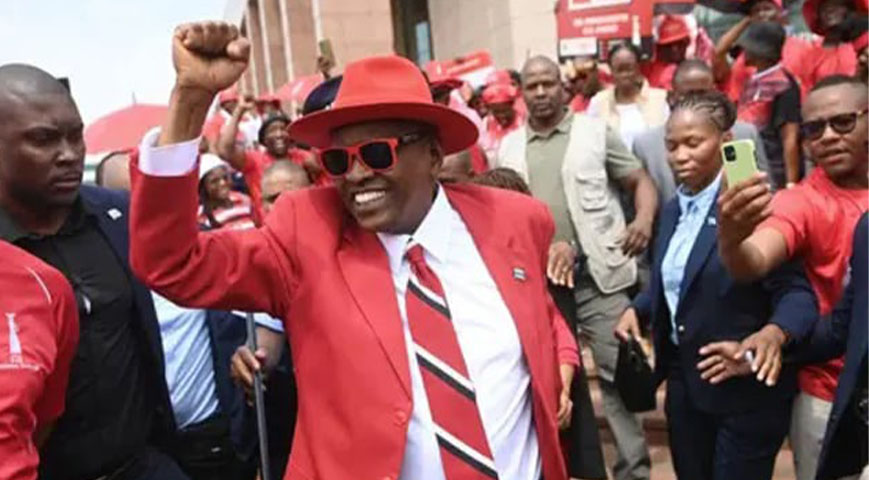The Botswana Democratic Party (BDP) aims to extend its nearly six-decade governance by securing a second term for President Mokgweetsi Masisi.
Over a million registered voters had four presidential options in the nation’s oldest democracy, established with independence from Britain in 1966.

Excitement was evident among voters like Lone Kobe, a 38-year-old self-employed resident of Gaborone, who, having queued since early morning, expressed hope for change. Many voters voiced concerns about economic disparity, high unemployment, and limited opportunity access.
Did you read this?
However, in the lead-up to the election, opposition groups have accused the Independent Electoral Authority (IEC) of bias, citing issues like restricted access to digital voter rolls and shortages of ballots during early voting for public officers.
Concerns over economic challenges, unemployment reaching 27%, alongside alleged government corruption, have also driven voter interest.
President Masisi, 63, held a final rally in Gaborone, reaffirming his commitment to expanding his policies if re-elected. His supporters highlighted the BDP’s provision of state-sponsored education and healthcare, influencing many citizens’ loyalty.

Nevertheless, opposition groups, led by Duma Boko of the Umbrella for Democratic Change (UDC), have struggled to present a unified front. The Botswana Patriotic Front (BPF) and Botswana Congress Party (BCP) recently split from the UDC, weakening their coalition.
With 61 parliamentary seats at stake, the election’s outcome depends on securing a majority of 31 seats to win the presidency. Former President Ian Khama’s return after years in self-imposed exile to campaign against Masisi stirred excitement, though analysts believe his influence is limited.
Vote counting commenced after polls closed Wednesday evening, with results anticipated by Thursday.









